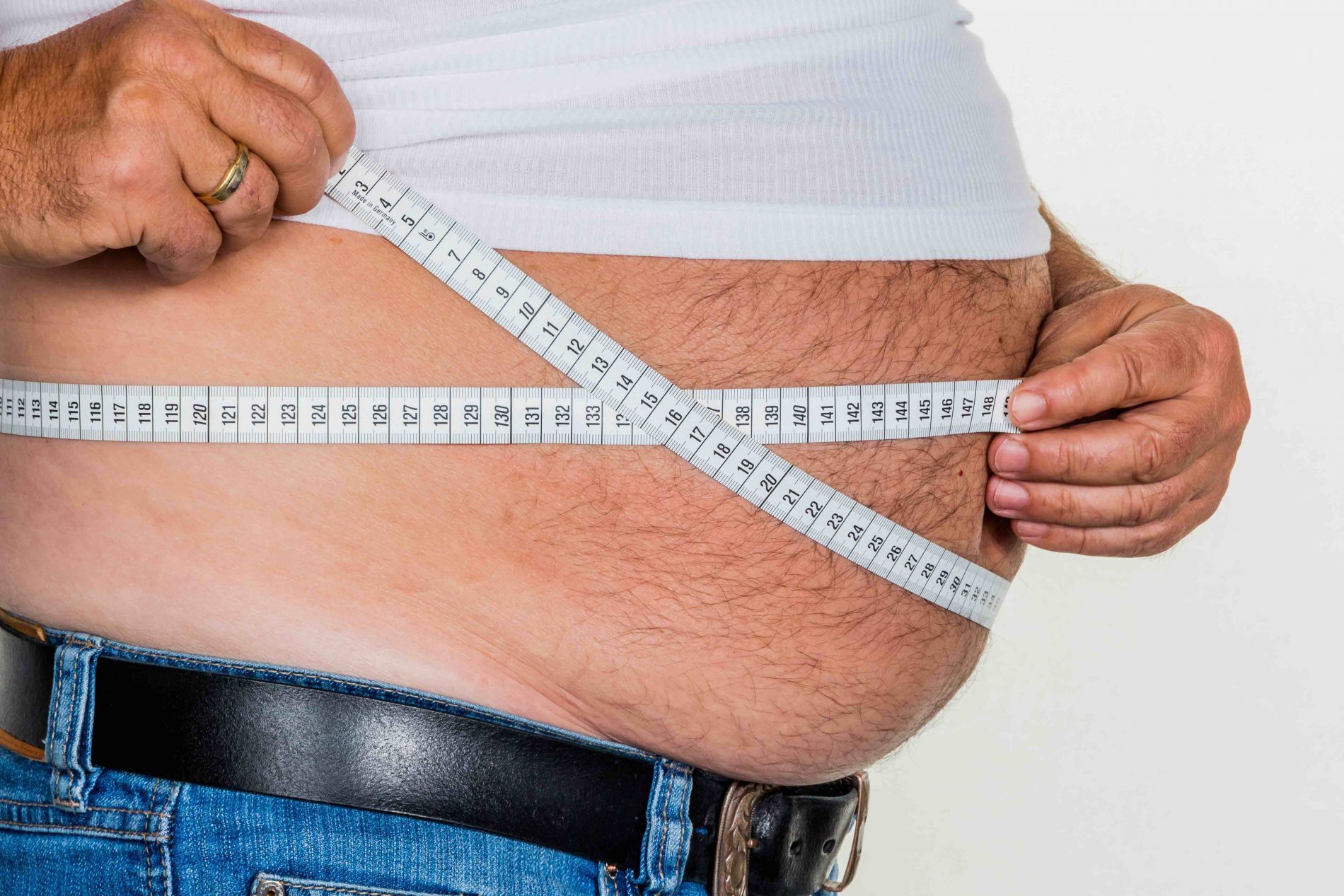Do you carry extra weight around your abdominal area? Research is telling us that people of normal weight who have extra central body fat are at an elevated risk of dying of heart disease.
Central obesity it extra fat around your midsection, and there is an easy way to calculate if you may fall into this category.
1. Measure your waist at your belly button.
2. Measure your hips at the widest part of your buttocks.
3. Divide the first number by the second number.
For men, your waist-to-hip ratio should be no greater than 1.0 and for women it should be no greater than 0.9.
If your numbers are higher than the suggested ratio, there are simple changes that you can implement to reduce your ratio and improve your health.
The first thing that you need to do is to add more fresh fruit and vegetables to your diet. It’s very difficult to make a massive diet and lifestyle change all at once and be able to sustain it long term. So the most important thing you can do is eat more fruit and veggies and these foods will begin to crowd out the bad foods.
I also want you to moderate your meat intake. A serving of meat is the size of a card deck. Which does not mean 8 decks stacked on top of each other!! When was the last time you ate a steak that fit in your hand? I bet it’s been awhile.
Over the years, our portion sizes have grown and grown into rather ridiculous quantities of food. Our bodies don’t need that much food and literally can not digest that much protein in one sitting. This extra protein ends up being stored as fat and can contribute to central obesity, putting you at risk for heart disease.
Avoid fast food, processed food and packaged food.
Eat real food!! Learn to make a few delicious recipes that you enjoy. Check out our blog of recipe ideas here.
And of course, move your body more often. Add some gentle cardio to your routine, go for a power walk at lunch, hit the gym and sweat it out.
The very first sign of heart disease is erectile dysfunction. Your arteries and capillaries are very active and sensitive in that area, and can be the first to indicate that there is hardening of the arteries or plaque building up in your blood vessels.
Obviously not a topic that you want on your radar, but heading to the doctor for a prescription to help in this area is one of the worst things you can do. It puts added stress on your cardiovascular system and masks an important symptom that is telling you that your body is in distress.
This is the time to make healthy diet and lifestyle changes to let your body naturally heal and return to abundant health.
With Sources from:
http://www.health.harvard.edu/heart-health/research-were-watching-belly-fat-boosts-risk-of-dying-of-heart-disease
Jo-Anne Richardson has almost a decade of experience managing a chiropractic office and educating patients on how chiropractic can allow your body to express optimal health. She is a Registered Holistic Nutritionist and holds a Degree in Communications. She loves to experiment with raw vegan recipes, loves to salsa dance, travel and learn new holistic health information to share tips with everyone who visits the office.


